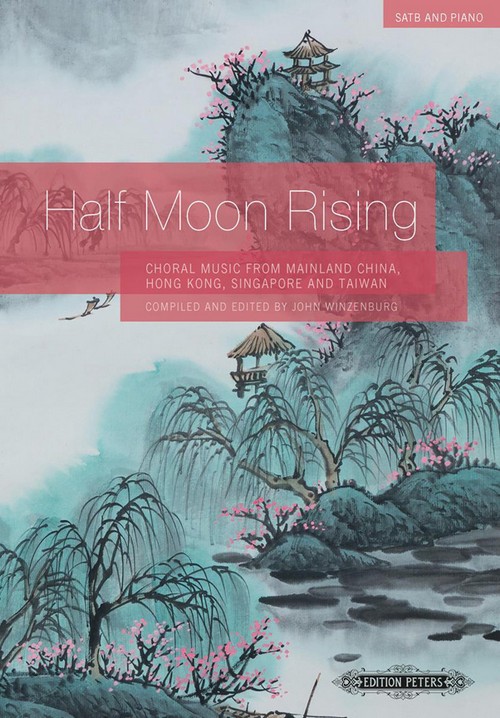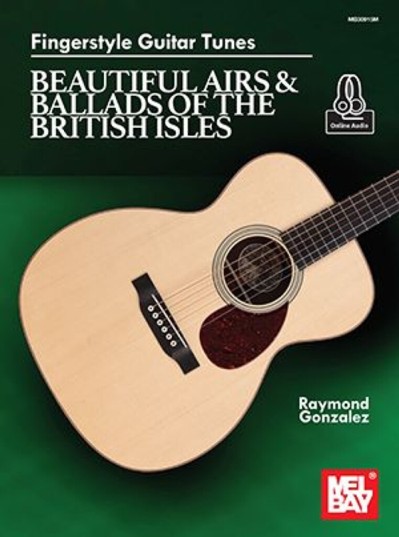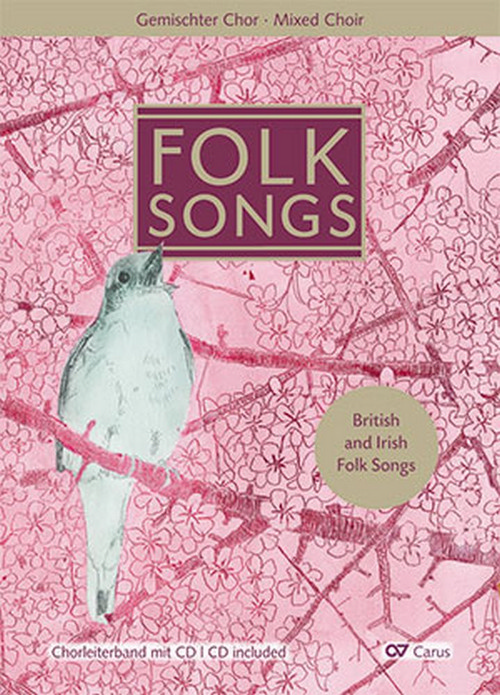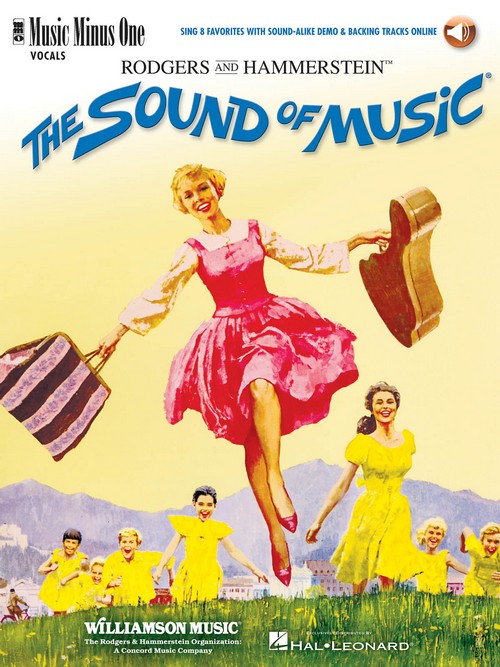
Half Moon Rising. Choral Music from Mainland China, Hong Kong, Singapore and Taiwan
Winzenburg, John
Peters. 2017Instrumento:
- Voz / Coro / Coro y teclado /
Ficha técnica
- EAN: 9790577009087
- ISBN: 979-0-5770-0908-7
- Código del editor: EP72625
- Editorial: Peters
- Fecha de edición: 2017
- Encuadernación: Rústica
- Dimensiones: 19x27
- Idioma: Chino/Inglés
- Nº páginas: 244
Disponible en breve
Sin stock. Si se pide hoy, se estima recibir en la librería el 29/04/24PVP. 24,40€
Añadir a la Lista de deseos
Half Moon Rising offers a broad range of mixed voice choirs an informed and fascinating introduction to the performance of Chinese choral music.
The collection includes:
- a representative and contrasting selection of works from the past century
- folksong arrangements; pieces mixing traditional Chinese and Western Romantic styles; and contemporary settings of ancient poetry
- a broad range of styles and dialects, illustrating the region?s rich diversity, all presented with the transliterated original text
To help conductors and singers: each piece includes a poetic English translation below the staves and an introduction containing information on the composer or arranger, the folksong andtext, performance notes, and a literal English translation. The collection also includes a historical introduction to the repertoire and a Mandarin pronunciation table.
Free supporting online resources provide (www.editionpeters.com/halfmoonrising):
- detailed written and aural pronunciation guides for each piece
- recordings of performances of individual works
- simplified piano accompaniments for selected pieces
The editor speaks about this work:
Half Moon Rising offers a broad range of mixed voice choirs an informed and fascinating introduction to the performance of Chinese choral music.
Its editor John Winzenburg is an assistant professor of music at Hong Kong Baptist University, where he conducts the Cantoría Hong Kong and the HKBU Choir. He is also Director of the Hong Kong New Music Ensemble's professional choir HKNME Chamber Voices.
Winzenburg is also a researcher in Chinese choral music and internationally renowned clinician in this subject. Here he talks about the collection.
- Why a Chinese choral anthology?
The Chinese choral scene was relatively undeveloped until the m d-twentieth century. In recent decades both choral activity and composition has expanded massively and the real boom that followed around 10 years ago is making choral ¡¡fe in China genuinely vibrant. In this anthology we are trying to reflect both the history and the present of Chinese choral music.
- China is a huge country - is there such a thing as "Chinese choral music"?
There are of course common features, but also rich variety. First you have the different regions, from mainland China, to Hong Kong, Taiwan and Singapore. Then you have lots of different dialects, different vocal styles and different choruses performing in their own way. A new Chinese choral tradition is emerging precisely from this tremendous variation.
- What can you tell us about the repertoire?
In this anthology we want to present music that is easily accessible to non-Chinese choirs. Some is very Westerninfluenced and historically important for early Chinese choral music development. Other music highlights folk tunes and styles. There are also some mildly experimental songs, for example taking a pentatonic scale and using it as the basis for harmonisation, as well as those with vocal effects and dialects from different parts of China and Taiwan. The collection includes both accompanied and unaccompanied pieces.
- Do we have to learn to're d Chinese to be able to sing this music?
No, the score texts appear in coman letters with a general English translation. There will also be lots of supporting materials available both in the anthology and onl ne, like word-for-word translations, IPA guilles, and online audio examples for: pronunciation Introductory notes for each song will provide important information like the background to the relevant regional style, historical contexts and performance advice.
Find pages and recorded extracts of al¡ of the works at www.editionpeters.com/halfmoonrisiná
CONTENIDO:
1. Ban Ge Yue Liang Pa Shang Lai (Half Moon Rising) - Xinjiang folksong, arr. Cai Yuwen
2. Ba Jun Zan (Magnificent Horses) - Fantasy on a Mongolian folk tune, arr. Yang Hongnian, adapted and arr. Jing Ling-Tam
3. Cha Shan Qing Ge (Tea Mountain Love Song) - Guizhou folksong, arr. Chen Tscheng Hsiung
4. Diu Diu Dang Ah (Old Train Song) - Taiwan Yilan folksong, arr. Chien Shan-hua
5. Dui Hua (Antiphonal Flower Song) - Anhui folksong, arr. Shi Jin Bo
6. Gai Tau Hong Mei (Street Calls) - Leong Yoon Pin
7. Ge Lao Huan Ge (Happy Song of the Gelao) - Gelao folksong, arr. Zhou Zhengsong
8. Hong Dou Ci (Red Bean Poem) - Liu Xue?an, arr. Hwang Yau-tai
9. Ken Chun Ni (Cultivating Spring Soil) - He Lüting (music) Tian Han (words)
10. Kuai Le De Ju Hui (Happy Reunion) - Ancient tune of Sun Moon Lake, arr. Chuan-Sheng Lu
11. Lok Sui Tien (Rainy Days) - Hakka folksong, arr. Toh Ban Sheng
12. Mo Li Hua (Jasmine Flower) - Jiangsu folksong, arr. Chen Yi
13. Mu Ge (Shepherd?s Song) - Eastern Mongolian folksong, arr. Qu Xixian
14. Pao Ma Liu Liu Di Shan Shang (Horses Run on the Mountain) - Xikang folksong, arr. Zhao Yushu
15. Qing Chun Wu Qu (Dance of Youth) - Uyghur folksong, arr. Wang Luobin, choral arr. Wang Shiguang
16. Ru Meng Ling (Like a Dream) - Richard Tsang
17. Seui Diu Go Tau (Under the Mid-Autumn Moon) - Chan Kai-Young
18. Shui Guang Lian Yan (Ripples Glisten Away?) - Chen Yihan
19. Shui Xian Hua (Narcissus Flower) - Chinese folksong, arr. Lin Sheng-shih
20. Tin O O (Dark Clouds) - Northern Taiwan children?s song, arr. Tsai Yu-Shan
21. Xiao He Tang Shui (Flowing Creek) - Yunnan folksong, arr. Ma Shuilong
22. Xiao Huang Li Niao (Little Oriole) - Mongolian folksong, arr. Chan Hing-yan
23. Yang Guan San Die (Parting at Yangguan Pass) - Ancient Chinese tune, transcribed by Xia Yifeng, arr. Wang Zhenya
24. Yi Wang (To Forget) - Hwang Yau-tai (music), Zhong Meiyin (text)





